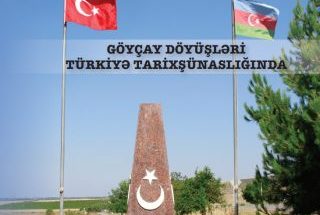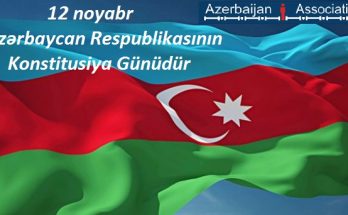 Former Speaker-designate of the U.S. House of Representatives Robert L. Livingston gives an interview to APA US bureau
Former Speaker-designate of the U.S. House of Representatives Robert L. Livingston gives an interview to APA US bureau
Profile. Robert Livingston was the member of the House of Representatives in 1977-1999. In 1998 in capacity of chairman of the Appropriations Committee Livingston initiated to eliminate Section 907 of the Freedom Support Act and managed its abolition on the level of the committee. Full abolition of the section was impossible in the voting held in the House of Representatives due to the pressure of the Armenian lobby.
– Both President Obama and Secretary of State Hilary Clinton have stated that they will foster the process of final settlement of the Nagorno-Karabakh conflict. How can it help the final settlement of Nagorno-Karabakh conflict?
– We have to hope that this is going to be true. In the next few weeks, the President Mubarak of Egypt is coming to the United States and President Obama is going to Egypt to address the entire Muslim world. It appears to me that President Obama has a very clear understanding of issues which affect the whole region, all the way through to the Caspian. If that is true, then he has to know that the resolution of the Nagorno-Karabakh conflict is a key ingredient to resolving the problems of the area. Turkey has been talking to Armenia these days and Prime Minister Ardogan just last week showed Azerbaijan that he is not going to resolve the border issue with Armenia without resolving the Nagorno-Karabakh issue as well. It is important for Europe because of the pipelines. It is important for the entire world because of troubled areas such as Iran and elsewhere.
With President Obama going to Egypt to address the Muslim world, his address is going to be a comprehensive one and the Nagorno-Karabakh conflict is going to be a very key component.
– In 1998, your initiated to abolish “907” amendment to “The Freedom Support Act” almost succeeded in the House. Do you think will it be possible to repeal it with the Democrats controlling the Congress?
– It is an unfair provision. That provision was placed on the books back in 1992 by John Kerry in the middle of the night when nobody was looking and nobody thought anything about it. There is no provision of this kind like that aimed at any other friend of the United States or any enemy of the United States. It is the only provision of its sort in our foreign policy and it needs to be abolished. Almost everybody in our Defense Department says it should be abolished, some people in our State Department say that it should be abolished. But getting the political will of the majority of Congress in both Houses takes work. With the Armenian Diaspora constantly working against it, it is an uphill battle. But it is possible.
– Don’t you think that with John Kerry, a chairman of the powerful foreign affairs committee, it will be difficult to do?
– Senator John Kerry has a different hat to wear these days. He is Chairman of the Senate Foreign Relations Committee and has to be more responsible. His responsibility is to do what is in the best interest of the United States. Eliminating 907 is not only in the best interest of Azerbaijan but it is in the best interest of the United States.
– Some experts in Washington believe that if Turkey opens its borders with Armenia without significant progress on Nagorno-Karabakh issue, it still will bring an improved environment to the region. Do you agree with this approach?
– Not really. Once you open the border then people who are occupying the territory will not likely give it up. It needs to be a comprehensive resolution. Otherwise the people who have gained the ground will refuse to move and you will continue to have a struggle. Then it will be up to the individuals to fight for their property back and once the conflicts starts you can not get rid of it. So I think we need a comprehensive settlement.
APA



